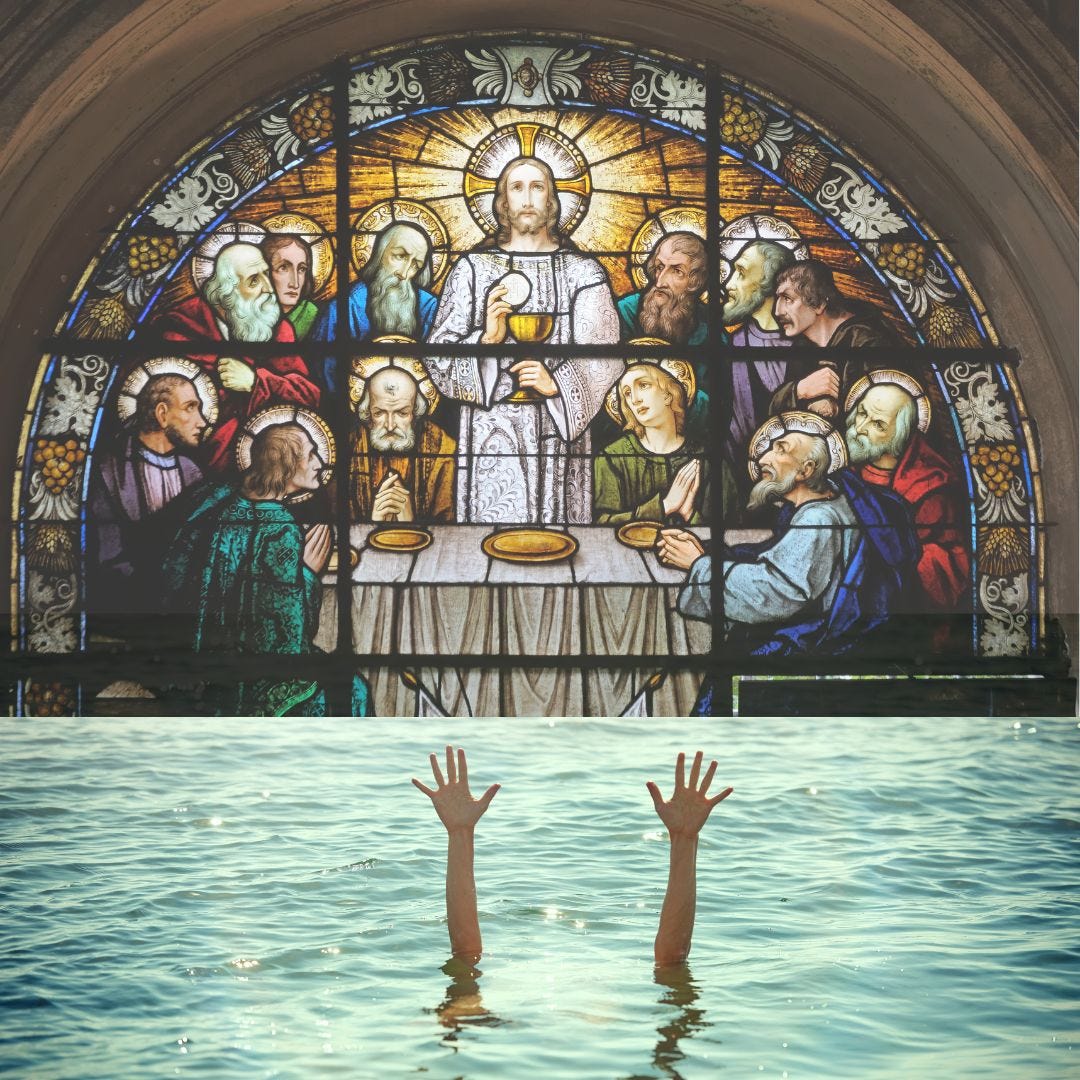The Ghost of Conscience Past
the art of spiritual peeling
The good conscience has as a preliminary stage the bad conscience - the latter is not its opposite: for everything good was once new, consequently unfamiliar, contrary to custom, immoral, and gnawed at the heart of its fortunate inventor like a worm.
Nietzsche, Assorted Opinions and Maxims §90
“I just know.”
I’m guessing that this is one of the most common responses to the question of right and wrong. “How do you know it is right or wrong to <insert morally questionable act>?”
“I just know.”
This reliance on a sense of right and wrong, on an internal moral compass, is widespread. I hear it all the time - other versions of it include: “trust your gut” and “go with your instincts” and “rely on your intuitions.”
But is this a solution to difficult moral and ethical questions?
I think that it is, at best, a partial solution. If you are a person who has worked at refining your sense of right and wrong, trying to free yourself from moral groupthink and the expectations of others, I suppose there are times when your moral intuition will serve you well.
But there are also many reasons why moral intuition might lead you astray. The main one is this: your intuitive response to an ethical dilemma is profoundly shaped by the people around you. Your family, your society, your culture surround you like concentric circles of moral influence. It is very likely that you don’t actually feel what you feel, or think what you think. It is likely that you feel what they feel, and think what they think.
So how can you get out of this situation and try to develop your own sense for what is ethical?
If you’ve been reading Provocations for a while, you will know my answer to this: life-craft, Nietzsche-style.
One of the most transformative elements of Nietzsche’s philosophy is his ability to peel away the layers of moral groupthink. He is famous for his bombastic style - sometimes aggressive, sometimes darkly humorous, frequently contradictory but always penetrating.
I think one of the reasons he writes like this is simply to knock you off your perch. He doesn’t aim to teach you about what he thinks. He aims to show you what he thinks, hoping that it will challenge you to think again. And to start the process of rethinking, digging deeper, peeling away layer after layer, until you finally get to the core of what you really think, feel, believe. So that you can act the way that you want to.
So what are the major influences that shape our conscience? And how can we get far enough away from them to find out what we truly believe, individually and personally?
Let’s look at two of the big ones: religion and science.
Religion
Weak characters love harsh judgements - they ally themselves with the heroes of misanthropy, with the religious or philosophical blackeners of existence, or withdraw behind stern customs and demanding 'life-tasks'.
Nietzsche, Daybreak §238
Keep reading with a 7-day free trial
Subscribe to Provocations to keep reading this post and get 7 days of free access to the full post archives.




